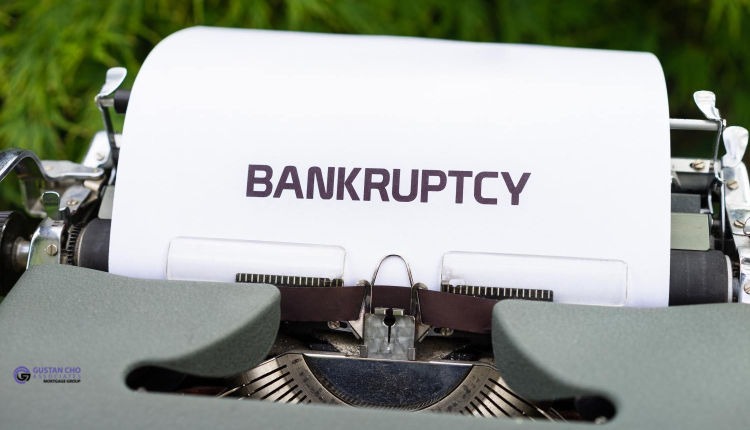Mortgage Guidelines With a Prior Home Loan In Bankruptcy
In this blog, we will cover the mortgage guidelines with a prior home loan in bankruptcy. There are instances when people file bankruptcy but include their current home loan in bankruptcy.
A frequently asked question is when does the waiting period start if you have a prior home loan in bankruptcy? Is it the discharged date of the bankruptcy or is it the finalization of the housing event? We will be answering these questions in this guide on mortgage guidelines with a prior home in bankruptcy. We will cover the waiting period start date on qualifying for a mortgage if you had a prior home loan included in bankruptcy.
Learn more about the mortgage guidelines with a prior home loan in bankruptcy with us.
Guidelines With a Prior Home Loan in Bankruptcy
Mortgage guidelines with a prior home loan in bankruptcy are different for each individual mortgage loan program. HUD has its own mortgage lending guidelines on FHA loans with regards to mortgage guidelines with a prior home loan in bankruptcy. Fannie Mae has just come up with new mortgage lending guidelines with regards to guidelines on having a prior home loan in bankruptcy.
In this blog, we will discuss and cover the mortgage guidelines with a prior home loan in bankruptcy on conventional and FHA loans. If a mortgage loan debt was discharged through a Chapter 7 bankruptcy, the mandatory waiting period after a bankruptcy discharge date is the waiting period start date.
The date of the foreclosure, deed in lieu of foreclosure, or short sale after the bankruptcy does not matter. The mortgage cannot be reaffirmed after the bankruptcy. There is a four-year waiting period after the discharge date of the bankruptcy to qualify for a conventional loan. This is a great benefit with conventional versus FHA loans.
FHA Guidelines on Prior Home Loan In Bankruptcy
To qualify for an FHA loan if you have a prior home loan in bankruptcy, the waiting period starts from the recorded date of the foreclosure and not the discharge date of the bankruptcy. For example, if you filed for bankruptcy in June of 2010. And you included your mortgage as part of your bankruptcy.
And the discharge date of your bankruptcy was October 2010 but your foreclosure did not get recorded until October 2012. The waiting period to qualify for an FHA loan starts 3 years from the October 2012 recorded date of your foreclosure. Even though the loan balance was wiped out from the Chapter 7 bankruptcy, the waiting period does not start from the recorded date the deed was transferred out of your name into the name of the lender.
Conventional Loan Guidelines on Prior Home Loan In Bankruptcy
The mandatory waiting period to qualify for a conventional loan is 4 years from the date of the bankruptcy discharge date. The great news with Fannie Mae conventional loan programs is that if you had a prior home loan in bankruptcy, the waiting period starts from the discharge date of your bankruptcy and not the recorded date of the foreclosure.
Buying a House After a Foreclosure
The foreclosure can be recorded past the discharge date of the bankruptcy. For example, if you filed for bankruptcy in January 2010. And the bankruptcy was discharged in May 2010 and had a prior home loan in bankruptcy. And the foreclosure was not recorded until January 2013. The 4-year waiting period starts from the discharge bankruptcy date of May 2014. This is a new Fannie Mae guideline on a prior home loan in bankruptcy which will enable home buyers who had their foreclosures recorded at a later date than the date of their discharged bankruptcy dates. Click here to buy a house after a foreclosure
| Derogatory Event Status | Waiting Period Requirements to Qualify for Conventional Loan | Waiting Period with Extenuating Circumstances per Fannie Mae Guidelines |
| Bankruptcy — Chapter 7 or 11 Filing | 4 years from Bankruptcy Discharge Date | 2 years from the bankruptcy discharge date |
| Bankruptcy — Chapter 13 Filing | 2 years from the discharge date of the Bankruptcy 4 years from the dismissal date of the Chapter 13 Bankruptcy | 2 years from the discharge date of the bankruptcy. 2 years from the dismissal date of the Chapter 13 date of the Bankruptcy |
| Multiple Bankruptcy Filings | 5 years if more than one filing BANKRUPTCY within the past 7 years | 3 years from the most recent discharge or dismissal date of bankruptcy |
| Foreclosure | 7 years from the recorded date of the foreclosure which is reflected on the county records or the date of the sheriff’s sale | 3 years from the recorded date of the foreclosure which is reflected on county records or the date of the sheriff’s sale. Additional requirements after 3 years up to 7 years: 90% maximum LTV ratios Purchase, principal residence Limited cash-out refinance, all occupancy types |
| Deed-in-Lieu of Foreclosure, Pre-foreclosure Sale, or Charge-Off of Mortgage Account | 4 years from the recorded date of the deed in lieu of foreclosure or the 4 years from the date of the short sale which is reflected on the HUD-1 Settlement Statement. | 2 years |
Frequently Asked Questions (FAQs)
- Is it possible for me to obtain a mortgage following a bankruptcy filing?
Yes, getting a mortgage after bankruptcy is possible, but the timing and specific requirements may hinge on the type of bankruptcy and the specific criteria set by the lender. - How long do I wait after bankruptcy to apply for a mortgage?
The waiting period after bankruptcy before applying for a mortgage varies depending on the type of bankruptcy (Chapter 7 or Chapter 13) and the type of loan (FHA, VA, conventional). Generally, the waiting period can range from 1 to 4 years. - What documentation must I provide when applying for a mortgage after bankruptcy?
You’ll typically need to provide documentation related to your bankruptcy discharge, including the bankruptcy petition, discharge papers, and any relevant court documents. Additionally, you’ll need to provide standard financial documents such as income statements, bank statements, and employment verification. - What are the credit score requirements for getting a mortgage after bankruptcy?
Credit score prerequisites may fluctuate based on the loan type and the lender’s criteria. Generally, you’ll need to demonstrate a pattern of responsible credit use and a sufficient credit score, typically ranging from 580 to 620 for FHA loans and 620 to 680 for conventional loans. - Can I qualify for government-backed loans like FHA or VA after bankruptcy?
Yes, qualifying for FHA or VA loans after bankruptcy is possible. Still, you’ll need to meet specific waiting period requirements and demonstrate that you’ve reestablished good credit since the bankruptcy discharge. - Do I need a down payment to get a mortgage after bankruptcy?
The necessity for a down payment may differ depending on the loan type and your financial situation. Government-backed loans like FHA and VA may have low or no down payment options. In contrast, conventional loans generally mandate a down payment spanning from 3% to 20% of the property’s purchase price. - Can I refinance my existing mortgage after bankruptcy?
Yes, it’s possible to refinance your existing mortgage after bankruptcy. Still, you’ll need to meet the lender’s requirements, including credit score, income, and equity in the home. - What steps can I take to improve my chances of getting a mortgage after bankruptcy?
Enhance your likelihood of securing a mortgage post-bankruptcy by prioritizing credit restoration, sustaining steady employment and income, accumulating funds for a down payment, and collaborating with an informed mortgage lender who comprehends your circumstances.
For more information on this blog and/or other mortgage-related topics, please contact us at Gustan Cho Associates, at (800) 900-8569 or text us for a faster response. Or email us at alex@gustancho.com. The team at Gustan Cho Associates is available 7 days a week, on evenings, weekends, and holidays.
Start your mortgage journey with us. Call us now!








